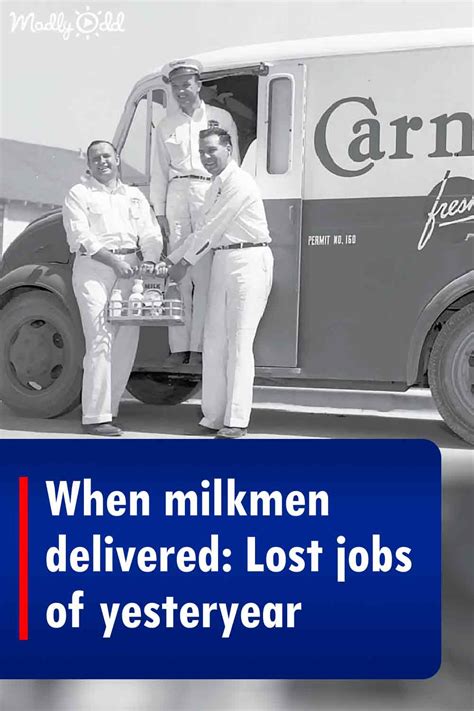
The workforce landscape of yesteryear, populated by now-vanished occupations, is being fondly and sometimes wistfully recalled by senior citizens who once held these roles, offering a glimpse into a bygone era of specialized skills and community-based services.
The relentless march of technological advancement and evolving societal needs have rendered numerous professions obsolete, leaving many seniors to reflect on their past careers as elevator operators, telephone switchboard operators, milkmen, pinsetters, and typesetters – roles that have largely been replaced by automation, digital solutions, and shifting consumer behaviors. These seniors, reflecting on their employment histories, paint a vivid picture of a very different American workforce.
“I was a telephone operator. It was a very important job,” recalls 82-year-old Margaret Johnson, highlighting the responsibility and personal connection inherent in manually connecting calls. Such jobs, once vital for communication, have now been almost entirely supplanted by automated systems.
The disappearing jobs represent not just individual career changes but also a broader transformation of the economy and society. The seniors sharing their stories emphasize the human element in these roles, highlighting the personal interactions and community ties that were often integral to the job. Unlike today’s increasingly automated and impersonal service sectors, these now-vanished jobs often involved direct and meaningful contact with customers and colleagues.
Many seniors express a sense of nostalgia for the craftsmanship and dedication required in their past professions. For example, typesetting, a skilled trade involving the manual arrangement of individual characters to create printable text, demanded precision and artistry. The rise of digital publishing software has all but eliminated the need for typesetters, leaving many to reminisce about the tactile satisfaction and intellectual challenge of the craft. Similarly, the role of the milkman, who delivered fresh dairy products directly to households, fostered a sense of community and personal service that is largely absent in today’s supermarket-dominated food distribution system.
The transition away from these traditional jobs has had a profound impact on the skills and training required for employment. As automation and technology continue to advance, the demand for workers with specialized technical skills and adaptability has increased. This shift has created both opportunities and challenges for workers, requiring ongoing education and training to remain competitive in the job market. The seniors who once held these now-vanished jobs often express concern about the potential for technology to displace human workers and the importance of ensuring that workers have the resources and support they need to adapt to the changing economy.
Beyond the economic implications, the disappearance of these jobs also raises questions about the social and cultural impact of technological change. The close-knit communities and personal connections that were often associated with these traditional jobs have been replaced by a more impersonal and transactional economy. As society becomes increasingly digital and automated, it is important to consider the potential consequences for social cohesion and the importance of preserving the human element in the workplace.
The seniors sharing their stories offer valuable insights into the past, present, and future of work. By reflecting on the jobs that have been lost to technological progress, they remind us of the importance of valuing human skills, fostering community connections, and adapting to the ever-changing demands of the modern economy. Their experiences serve as a reminder that while technological progress can bring many benefits, it is also important to consider the potential consequences for workers, communities, and society as a whole.
The stories of these seniors highlight the importance of preserving and celebrating the history of work. By understanding the skills, values, and traditions that were associated with these now-vanished jobs, we can gain a deeper appreciation for the contributions of past generations and learn valuable lessons about the future of work. As technology continues to reshape the economy, it is essential to ensure that workers have the resources and support they need to adapt and thrive in the changing world of work.
Many historical societies and community organizations are now working to document and preserve the stories of these seniors, recognizing the importance of capturing their experiences before they are lost to time. These efforts include oral history projects, museum exhibits, and online archives that showcase the tools, techniques, and traditions of these now-vanished jobs. By preserving and sharing these stories, we can ensure that future generations will have a better understanding of the past and a greater appreciation for the contributions of the workers who helped to build our society.
The recollections of these seniors also serve as a reminder of the importance of lifelong learning and adaptability. As technology continues to advance at an unprecedented pace, workers must be prepared to adapt their skills and knowledge to meet the changing demands of the job market. This requires a commitment to ongoing education and training, as well as a willingness to embrace new technologies and ways of working. The seniors who have successfully navigated the changing world of work often emphasize the importance of staying curious, seeking out new learning opportunities, and remaining open to new experiences.
The vanishing of these jobs also underscores the critical role of education and training in preparing workers for the future. As the demand for workers with specialized technical skills increases, it is essential to invest in education and training programs that provide workers with the skills and knowledge they need to succeed in the modern economy. This includes not only technical skills but also soft skills such as communication, problem-solving, and teamwork, which are increasingly important in today’s collaborative work environments. By investing in education and training, we can ensure that workers have the tools they need to adapt to the changing demands of the job market and to build successful careers in the 21st century.
The seniors’ reflections highlight a shift in the nature of work itself. Where many of these older jobs involved physical labor and repetitive tasks, the modern economy increasingly demands cognitive skills, creativity, and adaptability. This shift has implications for the way we educate and train workers, as well as for the types of jobs that are available. It also raises questions about the potential for technology to augment human capabilities and to create new opportunities for workers to engage in more meaningful and fulfilling work.
Moreover, the seniors’ narratives offer insights into the evolving relationship between work and community. Many of the now-vanished jobs were deeply embedded in local communities, providing not only employment but also a sense of belonging and social connection. As work becomes increasingly globalized and virtual, it is important to consider the potential consequences for community ties and the importance of fostering a sense of connection and belonging in the workplace. This can involve creating opportunities for social interaction, promoting employee engagement, and supporting community involvement initiatives.
The disappearance of these jobs serves as a cautionary tale about the potential for technological change to disrupt the economy and displace workers. While technological progress can bring many benefits, it is important to consider the potential consequences for workers and to take steps to mitigate the negative impacts. This can involve providing workers with retraining opportunities, strengthening social safety nets, and promoting policies that support job creation and economic growth. By taking proactive steps to address the challenges of technological change, we can ensure that the benefits of progress are shared by all members of society.
The seniors’ stories also highlight the importance of valuing diverse skills and experiences. Many of the now-vanished jobs required skills and knowledge that are not typically valued in today’s economy, such as manual dexterity, attention to detail, and customer service. As technology continues to automate routine tasks, it is important to recognize the value of these skills and to find ways to incorporate them into the modern workplace. This can involve creating opportunities for workers to use their unique skills and talents, promoting diversity and inclusion, and fostering a culture of innovation and creativity.
The experiences of these seniors underscore the need for a more holistic approach to economic development. Rather than focusing solely on economic growth, it is important to consider the social, environmental, and cultural impacts of economic development. This can involve promoting sustainable development practices, investing in community development initiatives, and preserving cultural heritage. By taking a more holistic approach to economic development, we can create a more just and equitable society that benefits all members of the community.
The reflections of these seniors also serve as a reminder of the importance of celebrating the dignity of work. Regardless of the type of job, all work has value and contributes to the well-being of society. By recognizing and celebrating the dignity of work, we can foster a greater sense of respect and appreciation for the contributions of all workers. This can involve promoting fair labor practices, providing workers with decent wages and benefits, and creating a workplace culture that values diversity, inclusion, and respect.
The stories of these seniors provide a valuable historical perspective on the changing nature of work. By understanding the past, we can gain a better understanding of the present and a clearer vision for the future. As technology continues to reshape the economy, it is essential to learn from the experiences of past generations and to take steps to ensure that the benefits of progress are shared by all members of society. The vanishing jobs serve as a poignant reminder of the human cost of progress and the importance of valuing the skills, experiences, and contributions of all workers. Their voices echo the necessity of embracing change while preserving the essence of human connection and community in the evolving world of work.
The rapid evolution of technology and its impact on the job market is a recurring theme in the seniors’ accounts. They witnessed firsthand how automation and digital advancements rendered their once-essential roles obsolete, leading to both personal and societal changes. Their reflections highlight the importance of continuous learning and adaptation in the face of technological disruption.
The experiences shared by these seniors also underscore the significance of preserving historical records and oral histories to document the changing landscape of work. These stories offer valuable insights into the skills, values, and social dynamics of past eras, providing context for understanding the present and shaping the future. Efforts to collect and archive these accounts are crucial for ensuring that future generations have access to this rich and often overlooked aspect of our history.
The common thread running through these narratives is the human element – the personal connections, the sense of purpose, and the pride in craftsmanship that were integral to these now-vanished jobs. As technology continues to transform the workplace, it is essential to remember the importance of these human factors and to strive to create work environments that foster a sense of belonging, meaning, and dignity.
The seniors’ reminiscences serve as a reminder that the world of work is constantly evolving, and that change is inevitable. However, by learning from the past and embracing a proactive approach to adaptation, we can ensure that workers are equipped to navigate the challenges and opportunities of the future. Their stories emphasize the importance of investing in education, training, and social safety nets to support workers in times of transition and to create a more inclusive and equitable economy.
The disappearance of these jobs also prompts reflection on the evolving definition of “work” itself. As technology automates more routine tasks, the focus shifts towards roles that require creativity, critical thinking, and complex problem-solving. This evolution necessitates a reimagining of education and training systems to prepare workers for the demands of the future, emphasizing skills such as adaptability, collaboration, and lifelong learning.
Ultimately, the seniors’ stories offer a valuable perspective on the human side of economic change. They remind us that while technological progress can bring many benefits, it is essential to consider the potential consequences for workers and communities. By learning from the past and embracing a proactive approach to adaptation, we can ensure that the benefits of progress are shared by all, and that the world of work remains a source of purpose, meaning, and dignity for generations to come.
The sharing of these memories not only provides historical context but also fosters a sense of intergenerational connection. Younger generations can gain valuable insights into the work ethic, skills, and social dynamics of the past, while seniors can feel a sense of validation and pride in their contributions to society. These exchanges can help to bridge the generation gap and promote a deeper understanding of the shared human experience.
The loss of these jobs often meant the loss of specific community roles. The milkman, for instance, wasn’t just delivering milk; he was a familiar face, a part of the neighborhood fabric. These personal connections are often missing in today’s more efficient, but less personal, systems. The seniors emphasize the importance of rebuilding community through other avenues as these traditional roles fade.
The seniors’ recollections are a call to action, urging us to consider the societal implications of technological advancements. It’s a reminder that progress should not come at the expense of human dignity and community well-being.
Frequently Asked Questions (FAQ)
-
What types of jobs are the seniors primarily recalling as having disappeared?
The seniors are reminiscing about roles such as elevator operators, telephone switchboard operators, milkmen, pinsetters (in bowling alleys), and typesetters. These jobs were once common but have largely been replaced by automation, digital technology, and changes in business models.
-
What are the main reasons cited for the disappearance of these jobs?
The primary reasons are technological advancements and automation, as well as evolving societal needs and consumer behaviors. Automation has replaced many manual tasks, while digital solutions have rendered some professions obsolete. Shifts in consumer preferences, such as the move away from home milk delivery to supermarket purchases, have also contributed.
-
What impact has the loss of these jobs had on the individuals who held them?
The loss of these jobs has led to significant career changes for many individuals, requiring them to adapt to new industries and acquire different skill sets. Some seniors express nostalgia for the craftsmanship, dedication, and personal connections associated with their former professions. They highlight the importance of lifelong learning and adaptability in navigating the changing job market.
-
Beyond the individual level, what are the broader social and cultural implications of these job losses?
The disappearance of these jobs has led to a more impersonal and transactional economy, with a decline in the close-knit communities and personal connections that were often associated with traditional occupations. It also raises questions about the impact of technology on social cohesion and the importance of preserving the human element in the workplace.
-
What efforts are being made to preserve the history of these now-vanished jobs?
Historical societies, community organizations, and museums are working to document and preserve the stories of seniors who held these jobs through oral history projects, museum exhibits, and online archives. These efforts aim to capture the skills, values, and traditions of these occupations and ensure that future generations have a better understanding of the past and a greater appreciation for the contributions of these workers.









